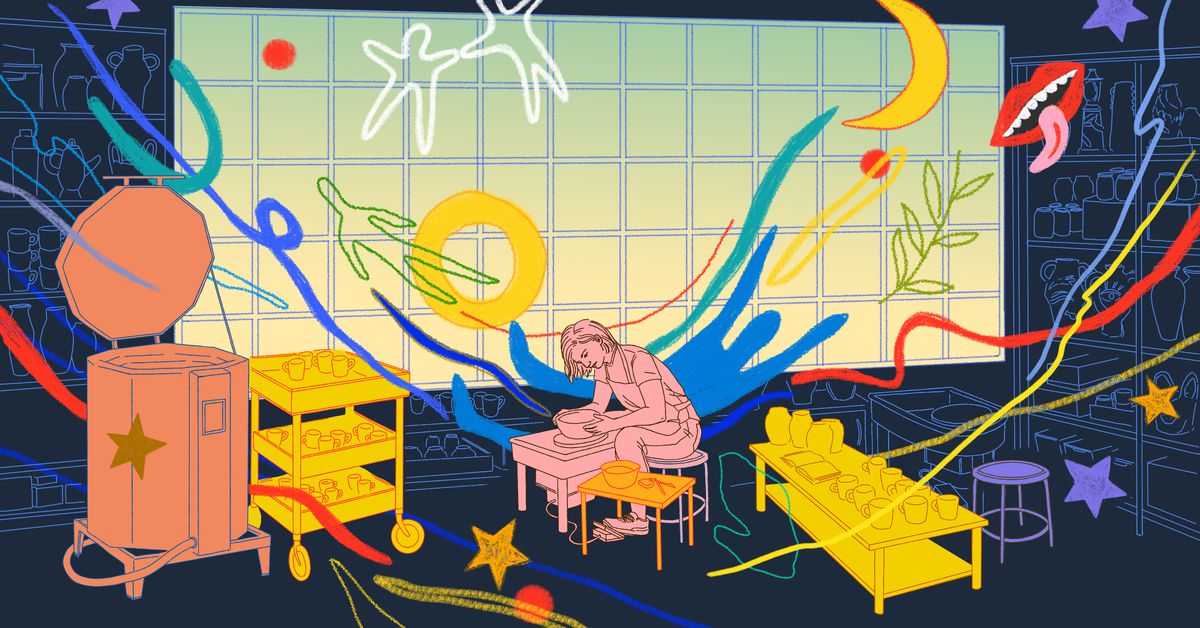Core Concepts
The author explores the journey of monetizing hobbies, highlighting the joy, struggle, and self-discovery that comes with turning a passion into a revenue stream.
Abstract
The content delves into the personal experience of the author as they navigate the transition from pursuing hobbies for leisure to monetizing them. It reflects on the challenges faced, the satisfaction derived from creating tangible products, and the internal conflict between artistic expression and commercial viability. The narrative captures the essence of finding joy in creativity while balancing financial considerations in a world where hobbies can become obligations.
Customize Summary
Rewrite with AI
Generate Citations
Translate Source
To Another Language
Generate MindMap
from source content
Visit Source
www.vox.com
When a hobby becomes a job
Stats
Making ceramics netted out to about $40 a week.
Studio cost was around $200 a month.
Baseline price for mugs was $40.
Quotes
"Success to me now is being true to myself." - RC
"Society puts so much pressure on success as in status or monetization." - RC
Key Insights Distilled From
by Marian Bull at www.vox.com 08-16-2021
https://www.vox.com/the-highlight/22620178/hobby-job-leisure-labor
Deeper Inquiries
How can individuals maintain authenticity in their creative pursuits amidst growing commercialization?
In order to maintain authenticity in their creative pursuits amidst growing commercialization, individuals need to stay true to their original vision and purpose for engaging in their hobbies or artistic endeavors. This involves resisting the temptation to cater solely to market demands and instead focusing on personal expression and creativity. By setting boundaries and prioritizing self-expression over profit, individuals can ensure that their work remains genuine and reflective of their unique perspectives. Additionally, seeking feedback from a trusted circle of peers or mentors who understand the individual's artistic goals can help provide guidance while staying true to one's creative integrity.
What are the potential drawbacks of turning hobbies into revenue streams?
Turning hobbies into revenue streams can lead to several potential drawbacks. One major drawback is the risk of losing the intrinsic joy and relaxation that originally came from engaging in the hobby. When financial pressures come into play, individuals may feel compelled to prioritize profitability over personal satisfaction, potentially compromising the quality or authenticity of their work. Moreover, monetizing hobbies can introduce added stress and expectations as individuals now have external factors influencing what they create rather than purely following their passions. Lastly, there is a risk of burnout when something once done for leisure becomes a source of income, leading to decreased enjoyment and fulfillment from what was once a beloved pastime.
How does societal pressure influence individuals' decisions to monetize their passions?
Societal pressure plays a significant role in influencing individuals' decisions to monetize their passions by promoting success defined through status or monetary gain. The cultural emphasis on productivity and achievement often leads people to view hobbies not just as sources of personal enjoyment but also as potential avenues for financial success or validation. As a result, many individuals feel pressured to turn their interests into revenue-generating activities in order to meet societal expectations regarding career advancement or entrepreneurial ventures. This pressure can push people towards commercializing their passions even if it compromises the purity or original intent behind why they pursued those activities initially.
0
